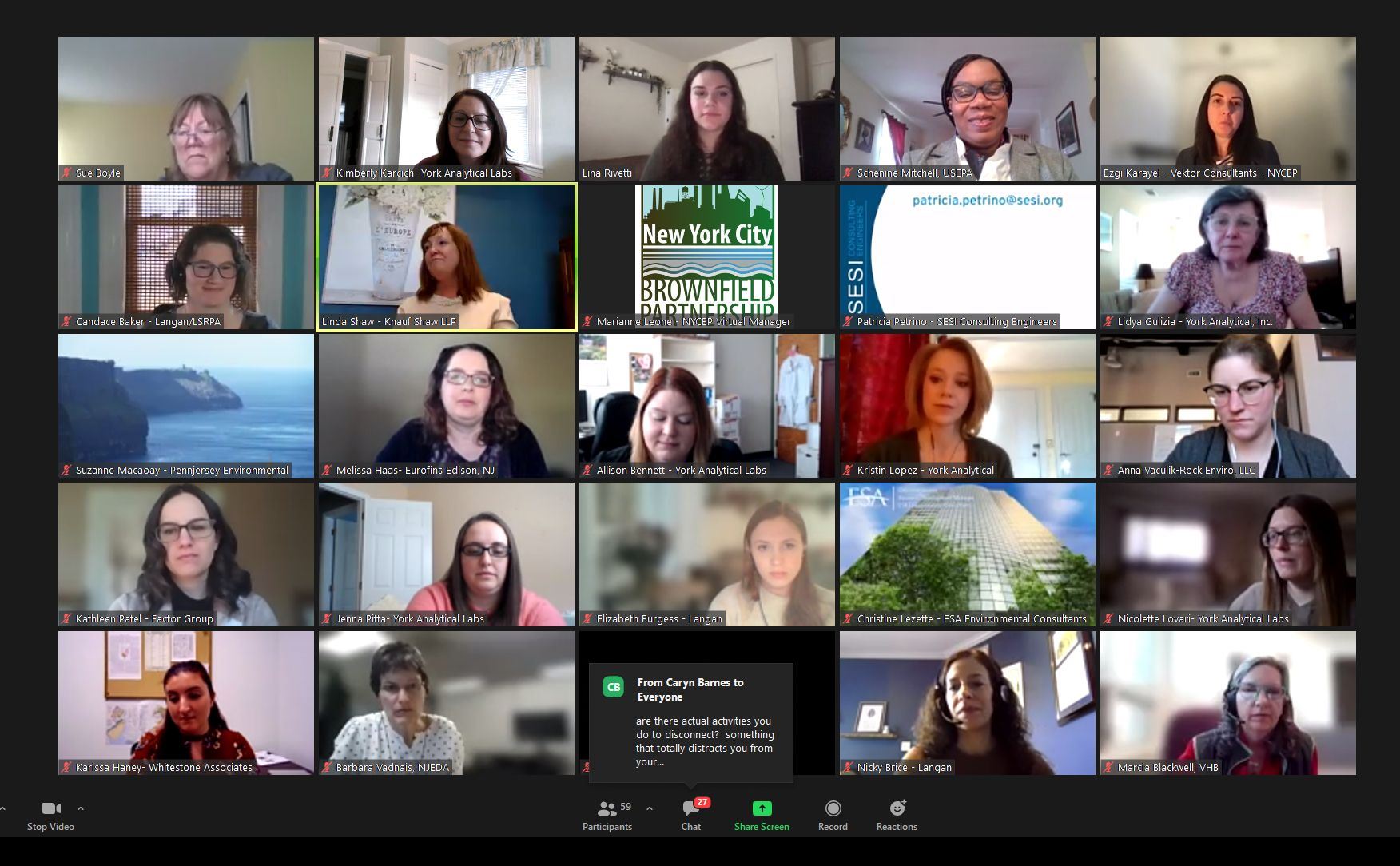by Lina Rivetti, NJDEP Part-Time Employee
How did you spend your afternoon on Tuesday, March 29, 2022? Were you one of over 60 women environmental professionals and a handful of male allies who joined us virtually for the inaugural “Women in Environmental Professions” Event put on collaboratively by the NYC Brownfield Partnership (NYCBP), the NJ Chapter of the Society of Women Environmental Professionals (NJSWEP), the NJ Licensed Site Remediation Professionals Association (LSRPA), and the Brownfield Coalition of the Northeast (BCONE)? Eighty-eight percent of attendees were members of at least one of the sponsoring organizations, and members of the audience joined us enthusiastically for an interactive and uplifting session.

This program was a success because of its moderator and wonderful speakers. Lina Rivetti, a student at the New Jersey Institute of Technology and recipient of an NJSWEP scholarship was masterful as a moderator. Superstar panelists Schenine Mitchell of USEPA Region 2; Ezgi Karayel, owner of vEKtor Consultants and President of the NYCBP; Candace Baker of Langan Engineers and VP of the LSRPA; and Linda Shaw, Esq., owner of Knauf Shaw and President of the Environmental Section of the NYS Bar discussed inherent qualities of all strong leaders, self-advocacy as women in the workforce, shifting career trajectories, obtaining a work-life balance, differences between the public and private sector, the importance of mentorship and marketing, as well as inspirational advice for current and future women aspiring to achieve more prominent roles in the environmental industry.
A few quotes from the speakers that really resonated with the audience include:
- “You are more valuable than you think;”
- “When it is meant to be yours, it will be yours,“ along with “ask for what you want” and “show up, but also speak up;” and
- “Powerful women empower women!”
We weren’t aware that this would be the “inaugural event” until it was clear that the 90-minute session was so energizing and informative that all attendees asked for it to be a quarterly event! High praise. Some of the topics we look to explore further while keeping up the conversation in upcoming virtual gatherings are:
- How to handle inappropriate behavior or harassment on job sites.
- What can we do as a group to specifically encourage and recruit more girls/women of color to join environmental professions?
- How to effectively and respectfully set boundaries
For the 88% of attendees who are members of at least one of the sponsoring organizations, look for eblasts and web posting for the date, time, and registration information for the next session. Please encourage others to join the conversation.
Many thanks to event sponsors Athenica Environmental Services; vEKtor Consultants; Knauf Shaw; HydroTech Environmental; Liberty Environmental, Inc; and Gallagher Bassett Technical Services. They were joined by the highest level sponsors of both the NYCBP and BCONE.